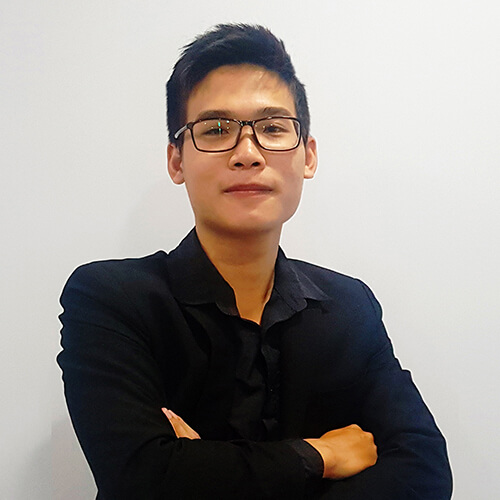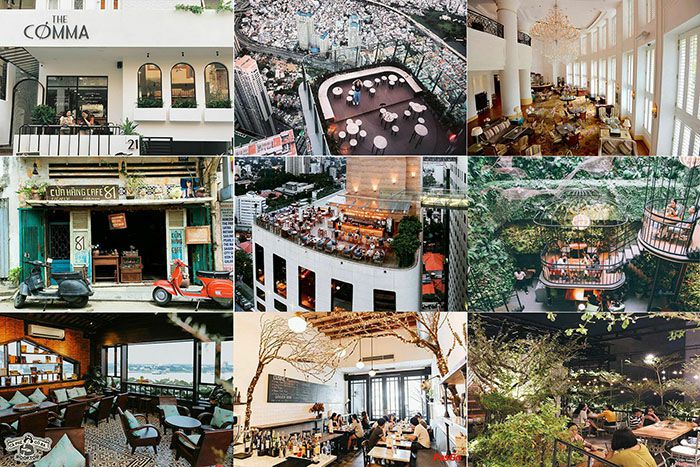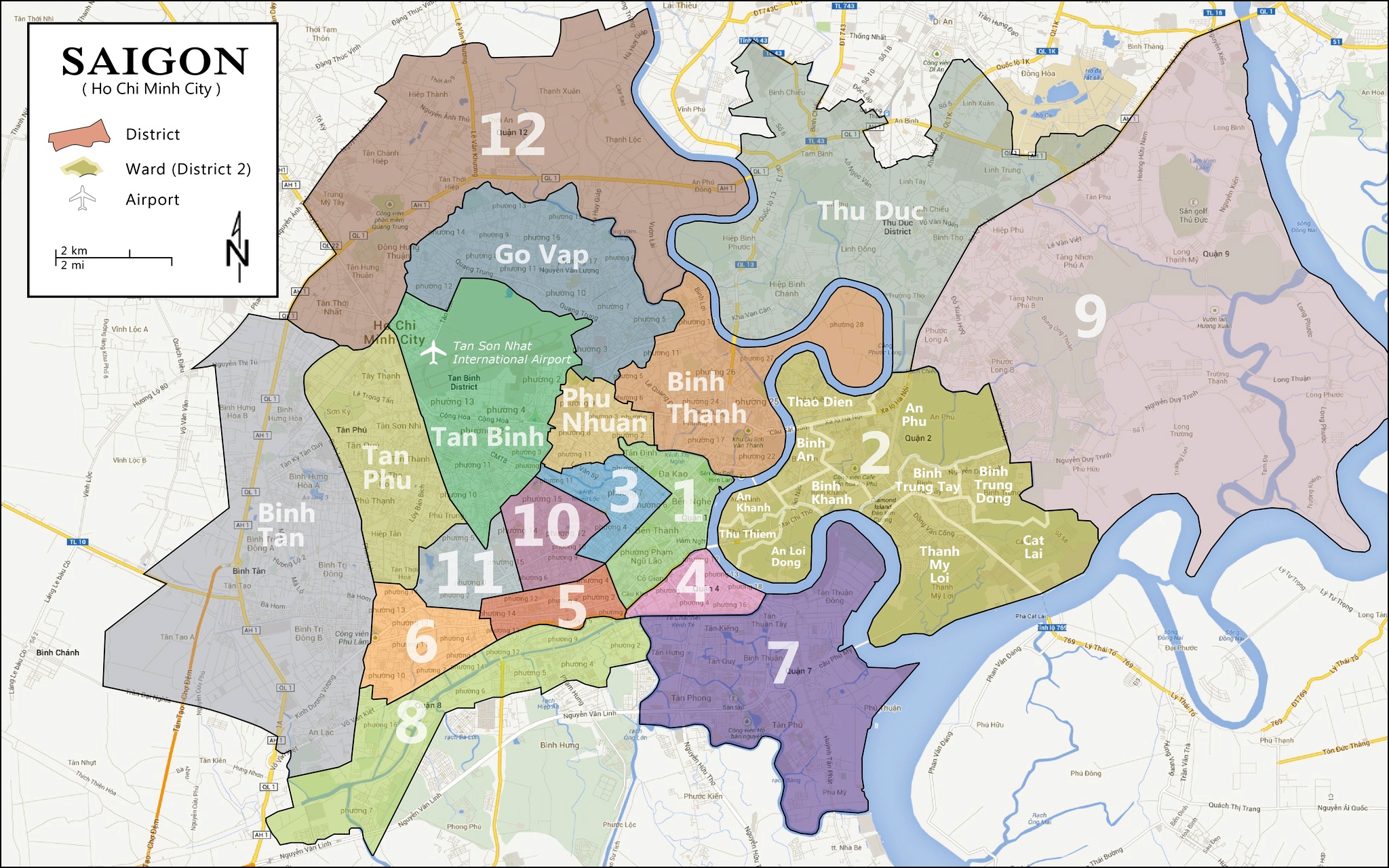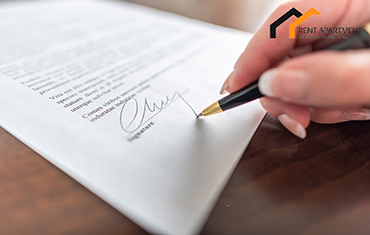There is a common misconception that foreign citizens or companies can not own property in Vietnam. However, it is completely possible. But there are specific conditions that you have to know before buying properties in Vietnam as a foreigner.
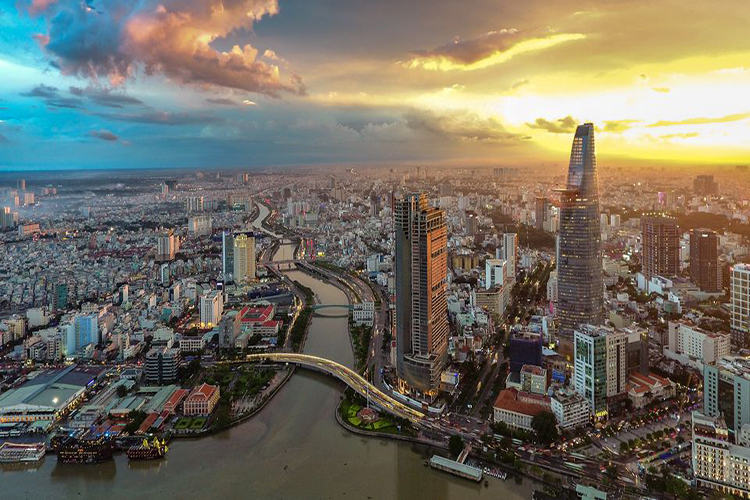
We have gathered all necessary information in this guide to clarify the possible ways for a foreign investor to acquire assets in Vietnam.
“Hi everyone, I’m Peter Hoang – a local agent with 8 years of experience working in real estate. I have helped a lot of foreigners to successfully invest in large and small projects in HCMC, I would like to share with you complete guides regarding real estate investment, buying and selling property in 2021 for foreigners.”

Can foreigners buy property in Vietnam?
Until a few years ago, the Vietnamese government still restricted foreign ownership by their laws. The cap was limited to one unit in a condominium. Therefore, at that time, there were not many foreigners who could invest in Vietnam real estate market.
Nonetheless, since July 2015, thanks to the Vietnamese Law on Residential Housing (LRH), foreigners can buy property in Vietnam at ease.
In other words, you can buy as many properties as you want, as long as you have enough money. This can be considered as a revolution in the regulations of foreign ownership.
Can foreigners buy land in Vietnam?
Like in most Southeast Asian countries, expats can not buy and own any land. As regulated in the constitution, the land is of collective proprietorship by all Vietnamese and governed by the state.
As regulated in the national Land Law, foreign organizations and individuals are able to rent land. Commonly, the validity of the lease can be up to 50 years. However, in exceptional cases, it can be up to 70 years and can even increase to 99 years in 2020.
Even if the stipulations are becoming more and more comfortable, and likely to loosen up in the future, it is still necessary for you to be cautious. For example, there is nothing to guarantee that you can always refresh your rent time.
Vietnam’s new law to foreign ownership of property

The most important things you need to know about the new foreign ownership of property law are as follows:
- If an expat has a tourist visa, he can buy a property.
- You can buy an unlimited number of real estate in the country. But at the time being, a foreigner can not buy more than 250 houses in one ward.
- Expats can buy up to 30% of the units in condominiums and can possess a maximum proportion of 10% of the properties in a project.
- The 50-year leasehold period is now renewable.
- If you marry a Vietnamese, you can get free ownership.
Vietnam’s Land Use Rights (LUR)
Fortunately, the Land Use Rights (LUR) can increase the safety for foreign investment in Vietnam.
As regulated in the LUR, you have no proprietorship on lands but the right to use the (including the land rented or endowed by the Vietnamese government.
Nevertheless, you will have to assign your Land Use Rights Certificate (LURC) to the Vietnamese government if you want to lease your land.
Can foreigners buy property from Vietnamese people?
Usually, foreigners will purchase real estates from former foreign landlords or dealers on the primary market.
That is because there is a significant limit on the secondary market. Unless the foreign quota is less than 30%, you will not be able to buy property from local citizens.
Vietnam real estate foreign ownership
It’s necessary for you to get a certificate of proprietorship if you want to purchase an estate from a property developer.
Due to the protection of national defense and security, since 2017, the government has made it harder for foreigners to receive their property ownership certificates.
According to a decree on Vietnam’s housing laws, expats can only possess up to 30% of the apartments in a project and are not allowed to own property in the checklists of special areas reserved for national defense and security.
Only the Ministry of National Defense and the Ministry of Public Security have the authority to determine those lists. To know about the list of housing projects available to foreign buyers, you should go to the department of construction in your area.
Ensure that you can totally possess your prospective property and get the ownership certificate as a foreigner before making any purchase.
The Pink Book

In Vietnam, the certificate of land use rights, ownership of houses, and other assets attached to land is commonly called the pink book. In other words, a pink book expresses your full proprietorship.
It has that name due to the pink color of its cover, and Vietnamese want to call it in that name for convenience.
Issued by the Ministry of Natural Resources and Environment, the pink book is valid to all kinds of land all over the country.
What does the pink book include?
The pink book will have the following uses:
- Function as collateral for bank loans
- Allow you to utilize your house for residential and any other purposes.
- Enable you to dismantle, maintain, renovate, or rebuild your house (but you must obey the conditions and procedures of laws on construction).
- Let you lease/sell/mortgage the house or give it to an heir.
The process when buying property in Vietnam
Before deciding to invest in Vietnam, you should understand the buying process thoroughly. No one wants to meet any unexpected additional fees that may appear later.
Below is a list of crucial things you should notice during the buying process.
1. How to pay for a property in Vietnam
- You can pay with cash assets, housing mortgage, or both of them.
- Some sellers will allow installment with different interest rate.
- Nowadays, transactions ordinarily utilize VND (Vietnamese Dong), and the US Dollar is invalid.
Example of a payment method for an apartment project in District 2, Ho Chi Minh City, Vietnam below:
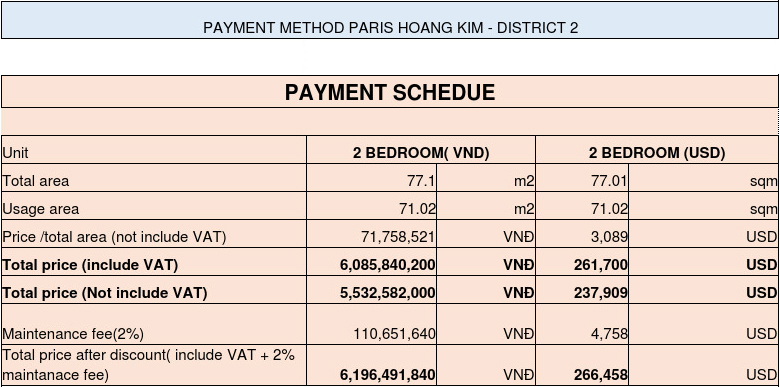
- See more: Vinhomes Central Park for rent
2. Why do you plan to buy?
Ask yourself what you are looking forward to when investing in Vietnam.
Central areas in Ha Noi and Ho Chi Minh City is the best choice for anyone who is looking for high appreciation. They are appealing to many foreign corporations, expats, and local people.
If you like a beachside resort, Da Nang, Quang Ninh, and Nha Trang are more suitable. Especially in Da Nang City, the housing prices have skyrocketed in recent years.
If you keen to high rental or trading profits, you had better purchase a range of units in places like Ha Noi and Ho Chi Minh City. This can also help you to minify the risk.
3. Hiring a property lawyer in Vietnam (optional)

I suggest you should consult a solicitor for significant transactions as there may be still some difficulties blocking your way.
However, expats will hardly need a lawyer when buying apartments on the primary market.
You can find not only foreign but also reputable local developers. Commonly, your property developer or agent will include a property lawyer when necessary.
4. Booking a property/apartment
Once your agent has helped you to find out your favorite property, it’s time for you to make a booking for this. Normally it will fall between VND 50 million and VND 100 million (about USD 2100 to USD 4500). This fee is for reservation purpose until the date of sale opening ceremony, this amount is refundable at anytime.
For example, your booking reservation number is 87th, on the sale opening ceremony, after 86 others will be given priority to pre-select an property to buy, then it will be your turn, if you decide not to buy that property, you can take back the booking money amount.
5. Pay the first installment & enter Deposit Contract
Within 14 days since paying your first deposit, you must pay your installment for the first time. The bank transfer will manage this payment.
By paying the first installment, you have agreed to enter the Deposit Contract. Later, it will not be transferable.
6. Pay the following installments per schedule
You and the seller should agree on all points of view in the contract before signing. Then, you will pay the following installments as specified in the contract terms.
Example of a payment schedule for an apartment project in Ho Chi Minh City, Vietnam:
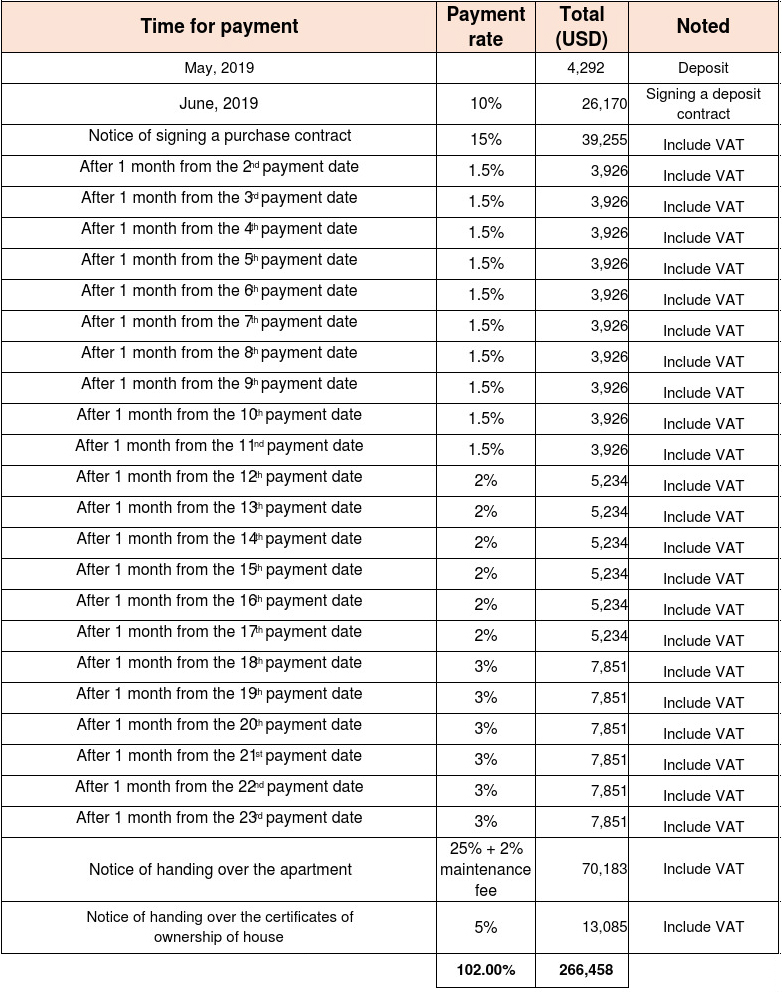
7. Sales & Purchase Agreement (SPA)
After your foreign ownership eligibility confirmation, you should draft and execute your SPA, and it shall be transferable later.
8. Handover of the unit
You will have to pay the maintenance fee equivalent to 2% of the purchase value before you can acquire your property.Apart from the maintenance fee, you need to pay one year of management and operation fees, the registration cost (0.5%), and an additional installment.
9. Preparation for granting the pink book
Once you have signed the SPA and controlled your financial duties, it is time to submit your documents together with the application to receive the pink book.
10. Final payment
Make your last pay within 14 days since you receive the notification of getting the pink book.
Transferring money to Vietnam when buying properties

Generally, you will have three payment options:
- Create a local bank account (I suggest Vietinbank, BIDV, or Vietcombank). You should call or send them an email in advance to see what they can offer you and to answer any questions.
- Find international branches of your home banks in Vietnam to help you transfer your money to this country. In Vietnam, there are four big international banks HSBC, Shinhan Bank, Standard Chartered, Citi Bank. To check whether your bank can help or not, search for them in this checklist.
- Transfer your money directly to the seller’s bank account in Vietnamese Dong.
Notice: In accordance with the law, you will have to verify any cash values that are over USD 5.000 when coming or leaving Vietnam.
Mortgages for foreigners in Vietnam
It is quite challenging for foreigners to get mortgages in Vietnam.As limited, you may need help from banks such as HSBC, OCB, or Standard Chartered to get property loans more easily.If an expat has married a Vietnamese, he/she will be able to get a 15-year loan taking up to 4/5 of the property value from OBC.However, you will have to provide some collaterals as proof of affordability to get a mortgage.Communicate with a few local banks to find out how they can help you. To ensure that you will get the best loan, you should check the interest rate, amortization requirements, and chargeback time.
Vietnam property taxes
The Vietnam VAT is 10% when it comes to purchasing an apartment on the primary market.
Maintenance fee/sinking fund
In all case, buyers will have to pay a maintenance fee of 2% of the purchase value.
Registration fee
The buyer needs to pay a registration fee of 0.5% of the property value.
Rental income tax
Vietnam has a high flat rental income tax in comparison with other countries in Asia.If you buy properties to lease, you will have to pay not only a 5% VAT but also a 5% personal income tax. To sum up, you must pay 10% of your rental incomes.
See more: apartment for rent in district 2
Capital gains tax
Even if there is no capital gains tax theoretically, you will still have to pay a personal income tax of 2% when selling your property.
Land tax
Expats can hardly purchase land, but the taxation is from 0.03 to 0.15% for their private information.Ask your solicitor or agent about how to solve the tax payments if necessary.
The process when buying property in Vietnam
Selecting an appropriate location to make an investment in a foreign country has never been easy. In Vietnam, I recommend you to seek for your opportunities in the two most prominent cities – Ha Noi and Ho Chi Minh City.
Ho Chi Minh city

As one of the fastest developing cities in Asia, Ho Chi Minh City is attracting more and more investors.Additionally, production expense in China is becoming more costly, and people in Mainland China or Hong Kong are recently seeking for oversea investments.I am sure that you will be able to find properties at prices that are around 25% lower in comparison with rates in cities like Singapore, Shanghai, Hong Kong, and Macau.Furthermore, apart from property prices, rental profits here are also escalating, especially in comparison with other countries in Southeast Asia.From my point of view, Ho Chi Minh City has very much to offer such as its business atmosphere, the relatively short distance to other business centers such as Hong Kong, Phnom Penh, Singapore, and Kuala Lumpur, and many other great opportunities, etc.Classical colonial-style buildings blended with the local culture and modern skyscrapers have made this city one of the most worthy choices to invest at this time and in the near future.
Hanoi
Though smaller than Ho Chi Minh City, Ha Noi is the capital of Vietnam.I can say that if Vietnam were China, Ha Noi would be Beijing and Ho Chi Minh City would be Shenzhen or Shanghai.Being a cultural and political center, Ha Noi is not appealing to investors as Ho Chi Minh City.However, a number of foreign investors (mainly Chinese, Japanese, and Korean) still pour money into this cozy capital’s property market.Overall, I think Ha Noi is also a good place for you to invest in Vietnam besides Ho Chi Minh City.
Can foreigners rent out a property in Vietnam?
At present, Vietnamese government puts no particular restriction on expats to rent out a property. Nonetheless, you should inform the housing authority in your area first before renting out your property.To find lodgers and draft a tenant contract, you may need the help of an estate agent.Your lodgers should pay you a sum of the deposit equivalent to about one to three months of rental cost (so it will be two months on average) in advance. You can keep that sum of money if they leave the houses before the contracted time.
For more: apartment for rent in Ho Chi Minh
Can Chinese people buy property in Vietnam?
Chinese people as well as other foreigners can buy real estate in Vietnam. However, some of “nine-dash line” Chinese passport holders, they will not be able to buy property in Vietnam because of some reasons for sovereignty and politics.
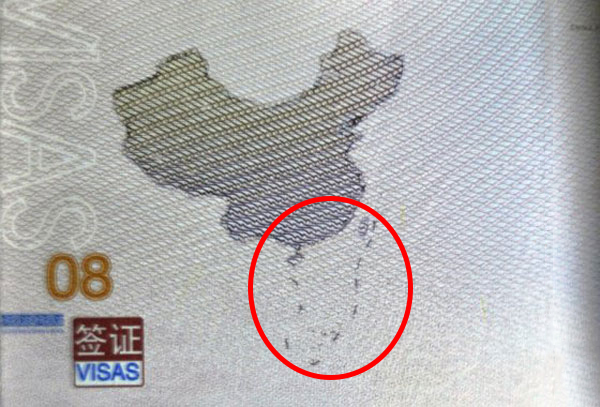
How can I settle in Vietnam?
Although Vietnam government offers no retirement visa or investor visa like Malaysia and Thailand, it is still possible for you to stay on a long-term tourist visa.Getting a Vietnamese nationality may be a good idea if you can.Still, an excellent selection can be using your units as a way to earn rental incomes. A lot of new projects and condos will allow you to stay in your units or other units in the same project in a few weeks yearly.
Cost of living in Vietnam?
The necessary sum of money to live is variable, but an average foreigner can spend from $800 to $1.200 per month for a comparatively good living standard.With that sum of money, you can enjoy fresh food, comfortable accommodation, medium restaurants, pubs and bars, fitness centers.However, if you have to take care of your whole family of 4-6 people, you may need more money. Or living in a more economical way such as less hanging out or living in small provinces is also a good idea.Or if you love to enjoy luxurious places, you will have to spend more money to live comfortably in big cities like Ha Noi and Ho Chi Minh City.In general, I can say that living in Vietnam is remarkably cheap compared to other countries in the region and the world.
Is Vietnam a good place to retire?
Yes, of course. Low living expenses, delicious and fresh dishes, beautiful climate are sufficient for older people.As there is no retirement visa, you can register for Vietnamese nationality.
Can a foreigner buy a house in Vietnam?
You are able to purchase houses from foreign dealers or in new projects.However, notice that it is necessary for you to rent out your land within 50 years because expats can not possess the land in Vietnam.
How high are property prices Vietnam?
Fortunately, Vietnamese property is among the cheapest in Asia.Real estates in district 1, 7, and 2 of Ho Chi Minh City are the most expensive. Nonetheless, there is no need for you to be afraid.The average price is USD 2.300 per square meter in the city center. Meanwhile, property in suburban areas is around USD 1.100 per square meter.If you want to save more money, you can invest in uncompleted or future projects. They can save you nearly half of the total investment. However, it can be risky to pour much money in such projects, so I recommend you consult your solicitor or try to find reputable contractors.If you seek for cheap property in big cities such as Ha Noi, Da Nang, Nha Trang, there are apartments which cost from USD 40.000 to 100.000 per unit.
Final Words on Buying Real Estate in Vietnam
Vietnam is an amazing developing country, and thus, expenses here are still low. Temporarily, it may not be as attractive as the major areas of China or Singapore, but Vietnam is very prospective in the near future.Therefore, if you have a vision for the long-term future, you should invest soon from now.Foreign investors are pouring their money into appealing cities like Ho Chi Minh City and Ha Noi. Nonetheless, other places such as Quang Ninh, Nha Trang, and Da Nang are rising. Before making any important decisions, you will need to consider the market and additional factors carefully.Finally, I hope that you could buy real estates in Vietnam successfully with information from the above guide.
That’s all for my sharing about real estate market with foreigner in Vietnam. If you need more information, have questions or want to invest in Vietnam real estate market, feel free to contact me by peter@rentapartment.vn or fill in the form below so I can support you better. Thank you for reading my sharing!
Contact Peter
“Hi every one! my name is Peter Hoang – Founder at RENTAPARTMENT real estate agent. With 8 years of work in expats area. I realize that, expat in Vietnam have been facing a lot of challenges and difficulties when it comes to finding property and specially dealing with the right real estate agents. With the mission to help them find best quality renting service in Vietnam. RENTAPARTMENT was founded for expats housing solution. We will make our expats community is greater and better….!!”
